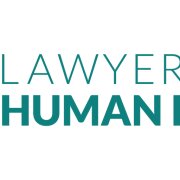Best Discrimination Lawyers in Johannesburg
Share your needs with us, get contacted by law firms.
Free. Takes 2 min.
List of the best lawyers in Johannesburg, South Africa
About Discrimination Law in Johannesburg, South Africa
Discrimination laws in Johannesburg, as in the rest of South Africa, are primarily aimed at promoting equality and protecting individuals against unfair discrimination. The country’s history of apartheid makes these laws particularly significant, with the legal framework being designed to eliminate the remnants of racial, gender, and other forms of discrimination. The Constitution of South Africa, along with the Promotion of Equality and Prevention of Unfair Discrimination Act (PEPUDA), provides a robust legal framework guiding how discrimination cases are identified and met with legal action.
Why You May Need a Lawyer
Individuals may require legal assistance in discrimination cases for a variety of reasons. If you have experienced discrimination in the workplace, in accessing services, or in other public environments, a lawyer can help you understand your rights and the appropriate legal actions. Legal advice can also be crucial for employers or service providers seeking to ensure compliance with local and national anti-discrimination laws. Additionally, lawyers can provide representation in court or mediation settings, facilitating the pursuit of justice and appropriate compensation.
Local Laws Overview
Key aspects of local laws that pertain to discrimination in Johannesburg include the Employment Equity Act, which aims to promote equal opportunity and fair treatment through the elimination of unfair discrimination; and the aforementioned Promotion of Equality and Prevention of Unfair Discrimination Act, which extends beyond employment to include discrimination in a variety of contexts. Moreover, the Constitution of South Africa enshrines the right to equality as a fundamental right, prohibiting discriminatory practices based on race, gender, sex, pregnancy, marital status, ethnic or social origin, color, sexual orientation, age, disability, religion, conscience, belief, culture, language, and birth.
Frequently Asked Questions
What types of discrimination are covered under South African law?
South African law covers discrimination based on race, gender, sex, pregnancy, marital status, ethnic or social origin, color, sexual orientation, age, disability, religion, conscience, belief, culture, language, and birth.
What is the first step if I believe I've been discriminated against?
The first step is to document the incident(s) of discrimination. Then, seek advice from a lawyer to understand your rights and legal options.
How can a lawyer help in a discrimination case?
A lawyer can advise on the strength of your case, assist in gathering evidence, provide representation in legal proceedings, and negotiate settlements on your behalf.
Are there specific organizations that can assist with discrimination issues?
Yes, organizations like the South African Human Rights Commission and the Commission for Conciliation, Mediation and Arbitration (CCMA) can offer assistance.
Is there a time limit for filing a discrimination complaint?
Yes, time limits can vary based on the nature of the complaint and the body with which it is filed. It's crucial to act promptly to ensure your case is heard.
What role does mediation play in discrimination cases?
Mediation is often encouraged as a first step to resolve discrimination disputes amicably, saving time and resources compared to a court case.
What remedies are available if my discrimination case is successful?
Successful cases may result in various remedies, including compensation for damages, changes in discriminatory practices, and orders for specific performance.
Can employers take proactive steps to prevent discrimination?
Yes, employers can implement diversity training, clear anti-discrimination policies, and ensure reporting mechanisms are in place.
What is PEPUDA and how does it apply to discrimination cases?
PEPUDA is the Promotion of Equality and Prevention of Unfair Discrimination Act, which aims to combat unfair discrimination, hate speech, and promote equality across South Africa.
How can I prove I have been discriminated against?
Evidence can include documented incidents, witness testimony, policy documents, and any communication that demonstrates discriminatory practices or attitudes.
Additional Resources
For additional support, consider reaching out to the South African Human Rights Commission, which advocates for equality and provides legal assistance in discrimination cases. Additionally, the Commission for Gender Equality and legal aid organizations can be valuable resources.
Next Steps
If you require legal assistance in a discrimination case, your first step should be to consult with a specialized lawyer in discrimination law. Gather all relevant documents and evidence related to your case, and make notes of key events and timelines. Contact a reputable law firm or legal aid organization in Johannesburg to discuss your case and explore the legal options available to you. Stay informed about your rights and actively engage with your legal advisors to ensure the best possible outcome.
Lawzana helps you find the best lawyers and law firms in Johannesburg through a curated and pre-screened list of qualified legal professionals. Our platform offers rankings and detailed profiles of attorneys and law firms, allowing you to compare based on practice areas, including Discrimination, experience, and client feedback.
Each profile includes a description of the firm's areas of practice, client reviews, team members and partners, year of establishment, spoken languages, office locations, contact information, social media presence, and any published articles or resources. Most firms on our platform speak English and are experienced in both local and international legal matters.
Get a quote from top-rated law firms in Johannesburg, South Africa — quickly, securely, and without unnecessary hassle.
Disclaimer:
The information provided on this page is for general informational purposes only and does not constitute legal advice. While we strive to ensure the accuracy and relevance of the content, legal information may change over time, and interpretations of the law can vary. You should always consult with a qualified legal professional for advice specific to your situation.
We disclaim all liability for actions taken or not taken based on the content of this page. If you believe any information is incorrect or outdated, please contact us, and we will review and update it where appropriate.
















